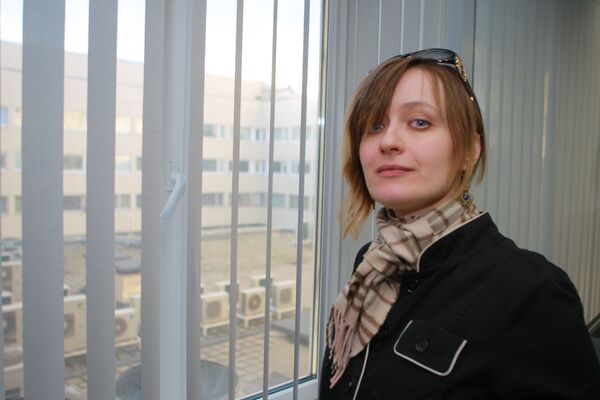The Dytalov Pass incident continues to captivate popular imagination in Russia and is shrouded in similar mythology surrounding, say, Area 51 in the United States.
To recap: the “incident” in question was whatever caused the deaths of nine hikers on the Kholat Syakhl mountain (the name appropriately means “Mountain of the Dead” in the indigenous Mansi language), in the Urals in 1959. An avalanche, which in turn led to hypothermia, which then led to disoriented and self-destructive behavior, is the tamer version of events. American spies, aliens and serial killers with a penchant for hanging out in minus 30 degrees Celsius have also been blamed (personally, I am not a fan of the serial killer version – not even Andrei Chikatilo was so gung-ho about murder).
As time went on and Russian society became more open, speculation about what really happened only broadened. Investigators were forced to decide that a “compelling natural force” had caused the deaths, which is a vague description at best, and a vague cause of death will create myths of epic proportions. A movie is due to come out this year, for example. According to IMDB, the movie features American students who decide to investigate the creepy deaths for themselves – always a smart move! It also utilizes the “discovered footage” gimmick that was ushered in by “The Blair Witch Project” and doesn’t want to go away. Books and articles on the subject are meanwhile being churned out at a tremendous pace in Russia.
Of particular interest to conspiracy theorists is the fact that one of the bodies found was missing a tongue. Wild animals could surely be to blame – but the body was so oddly positioned that some people have claimed, using crime scene photographs, that there is no way an animal could have gotten the tongue. Journalist Oleg Kashin has recently compared the obsession with these deaths to “Twin Peaks” fandom – brutal deaths, buried secrets, brooding landscapes, that sort of thing.
In a way, the mythology of the Dyatlov Pass incident mirrors the obsession of the times. Stories about corrupt cops and military officials fascinate Russia at the moment – and therefore theories of servicemen being responsible for the deaths are particularly hot right now. After all, the military may or may not have had a secret testing site near the place where the hikers’ abandoned tent was found. Everyone knows that nothing good ever happens around secret testing sites.
Many of the theories surrounding the Dyatlov Pass incident have been thoroughly debunked over the years. Cracked.com did a great job of reminding everyone a few years back that the “strange tan” observed on the bodies of the deceased was actually caused by… wait for it… exposure to sunlight as the bodies lay outside – as well as noted that hypothermia victims will often become delirious and undress themselves.
But Cracked writer Jake Slocum also hit on why is it that the Dyatlov Pass incident has generated all of this controversy – because it happened in “the Cold War-era Soviet Union, which treated casserole recipes as state secrets.” A lot of the documents surrounding the case were classified for years. Some were destroyed. Secrecy breeds mistrust, of course, and that in turn breeds wilder and wilder speculation.
Suddenly, everyone cited the Dyatlov Pass incident last year when an AN-2 plane vanished in the mountains nearby. The plane had apparently been hijacked by a party of local revelers, which included the traffic police chief of the town of Serov, from where the plane had taken off. “Help, we have two wounded with us… We’ll get eaten by bears!” this radio transmission was widely linked to the disappearance of the plane in September 2012, but may have actually been transmitted by yet another group of missing hikers (seriously, I am never hiking in the Urals, I have just decided).
Local investigators then argued that the phrase “we’ll get eaten by bears” was not clearly audible to begin with, and that the entire thing might be some kind of hoax.
Either way, the Mountain of the Dead and the surrounding areas continue to be a happening place.
Trendwatching in Russia is an extreme sport: if you’re not dodging champagne corks at weddings, you’re busy avoiding getting trampled by spike heels on public transportation. Thankfully, due to an amazing combination of masochism and bravado, I will do it for you while you read all about it from the safety of your living room.
Natalia Antonova is the acting editor-in-chief of The Moscow News. She also works as a playwright – her work has been featured at the Lyubimovka Festival in Moscow and Gogolfest in Kiev, Ukraine. She was born in Ukraine, but spent most of her life in the United States. She graduated from Duke University, where she majored in English and Slavic Literature. Before coming to Moscow, she worked in Dubai, UAE and Amman, Jordan. Her writing has been featured in The Guardian, Foreign Policy, Russia Profile, AlterNet, et al.
Trendwatcher: Migrants in Moscow Break Jaws and Make Peace
Trendwatcher: Meanwhile in Russia, a Tank Crossed the Road
Trendwatcher: Acid Attack on Bolshoi Director Has Terrifying Implications
Trendwatcher: Irina Kabanova – No One to Turn To?
Trendwatcher: The Dima Yakovlev Law – A Crying Shame
Trendwatcher:Thinking Locally on Adoption
Trendwatcher: This American Pig
Trendwatcher: Desperately Seeking Pavel Kostomarov

